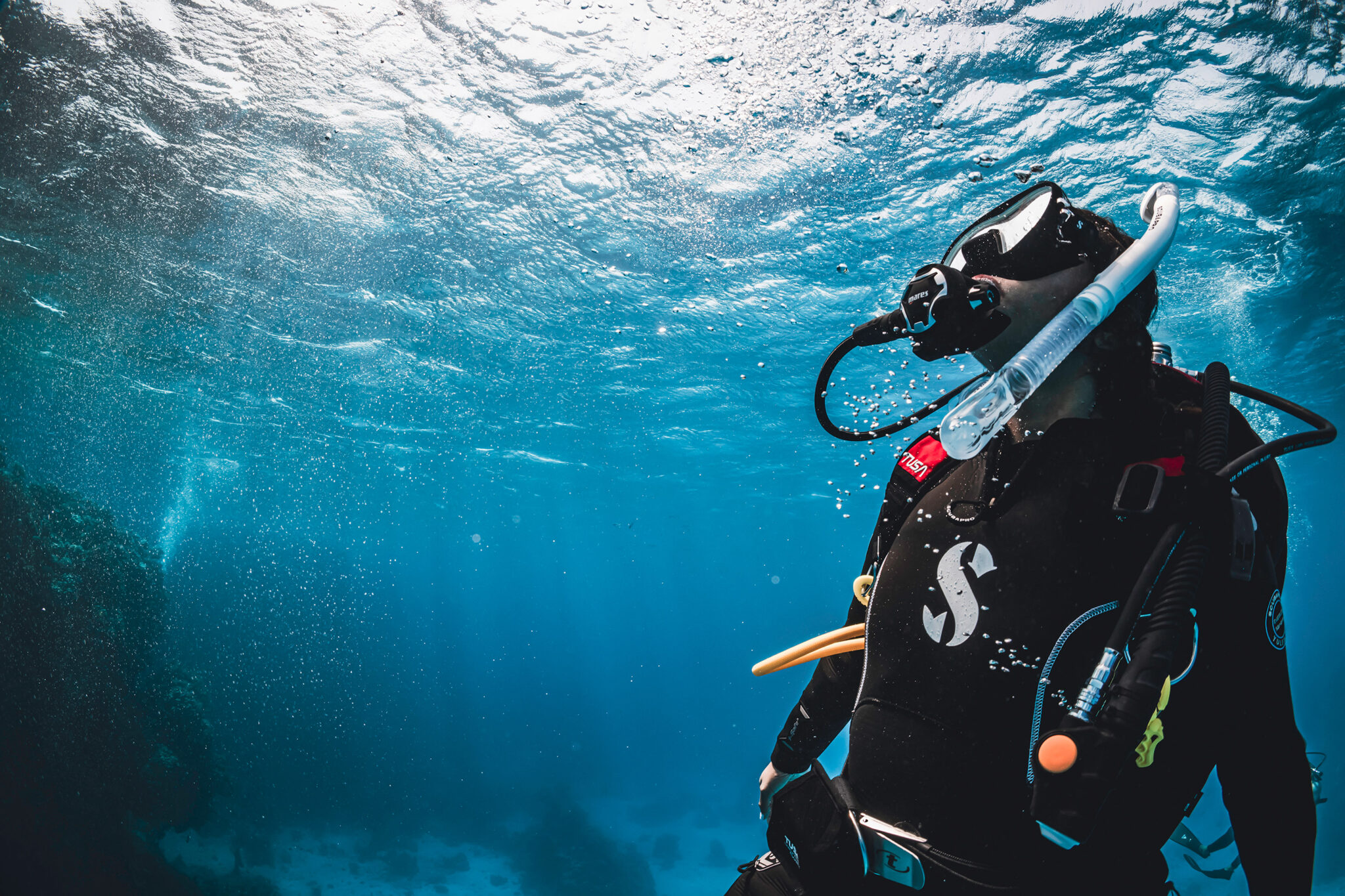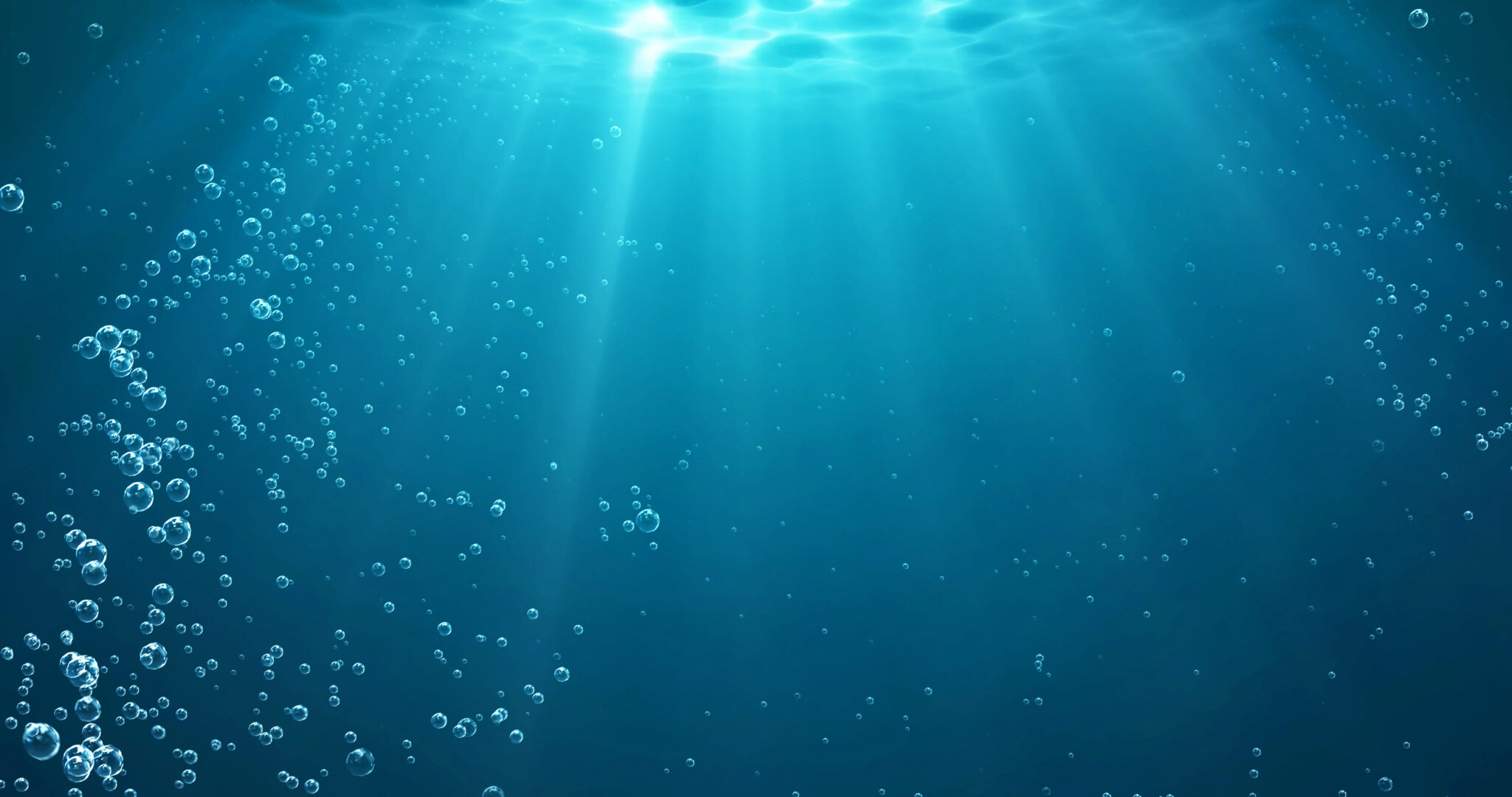Can you fart while diving? Perhaps surprisingly, this is a very popular scuba diving question. Whenever the topic of farting surfaces, someone inevitably starts laughing. The best way to “clear the air” is with a song. “Beans, beans, the magical fruit, the more you eat, the more you toot, the more you toot, the better you feel, so, eat your beans with every meal.”. But what if we’re going underwater, should we still eat those beans? On the bright side, no one will smell it, but is it dangerous or impossible to fart while scuba diving? Keep reading to find out.
In case you don’t already know, let’s begin by answering the question: What is a fart? Humans release gas from a few different places. For example, in our lower intestine, we have bacteria that digests our food. These bacterias release other gases as a bi-product. These gases are hydrogen, sometimes methane, and, when they smell, hydrogen sulfide. These bi-products expel many times daily. The average human passes gas approximately, 12-25 times a day. Producing roughly 0.6-1.8 liters of these gases each day.

Yes, farting is possible while scuba diving. But, at depth the urge to do so usually goes away. We’ll come back to this later. The process underwater is the same as on land. Just like clearing your regulator (an Open Water Diver skill), a forceful push and the bubbles release upward to the surface. The reason the bubbles travel up is that they weigh less than water.
As scuba divers, we know we experience pressure as we descend. According to Boyle’s Law, this pressure squeezes our lungs, sinuses, and even our mask. When thinking about other gases in our body, it’s the same. That’s why the urge of having to fart will disappear the deeper we go. Remember, for every 10 meters (30 feet) of depth, there is 1 additional atmosphere of pressure. The gas bubbles building up inside your body will become 1/4 the size around 30 meters (100 feet), making it feel like there’s no urge at all.
| Depth (in meters) | 0 meters | 10 meters | 20 meters | 30 meters |
| Depth (in feet) | 0 feet | 33 feet | 66 feet | 100 feet |
| Atmosphere | 1 ATA | 2 ATA | 3 ATA | 4 ATA |

There aren’t very many problems that could occur from farting while scuba diving.
While wearing a dry suit, divers use the air inside the suit to create neutral buoyancy. Occasionally, divers need to add or remove gas air from inside the suit for our buoyancy and comfort. Depending on the quantity of gas you pass, there shouldn’t be a huge impact on the amount of air in the dry suit. In case, you’re continuously passing gas, make sure to know where your deflator button is. Remember we only create .06-1.8 liters of flatulence a day, so the chances of a problem occurring is slim.
As for a wetsuit, the bubbles should escape the suit near the back of your neck or at your ankles, so there’s no need to worry. Just make sure your buddy isn’t swimming behind you, they may notice.
So, can you fart while diving? Yes, you should be able to fart while diving with little to no impact on your safety. However, you likely won’t need to fart while diving.
The biggest concern surrounding this topic is one of personal embarrassment. Make sure you look around first and confirm no one is around you. Then, pass that gas and let those bubbles dance away.
More questions? Take the Peak Performance Buoyancy Specialty course to learn more about what can and will impact your buoyancy throughout a dive.
LEARN MORE ABOUT THE PEAK PERFORMANCE BUOYANCY SPECIALTY COURSE
Share This